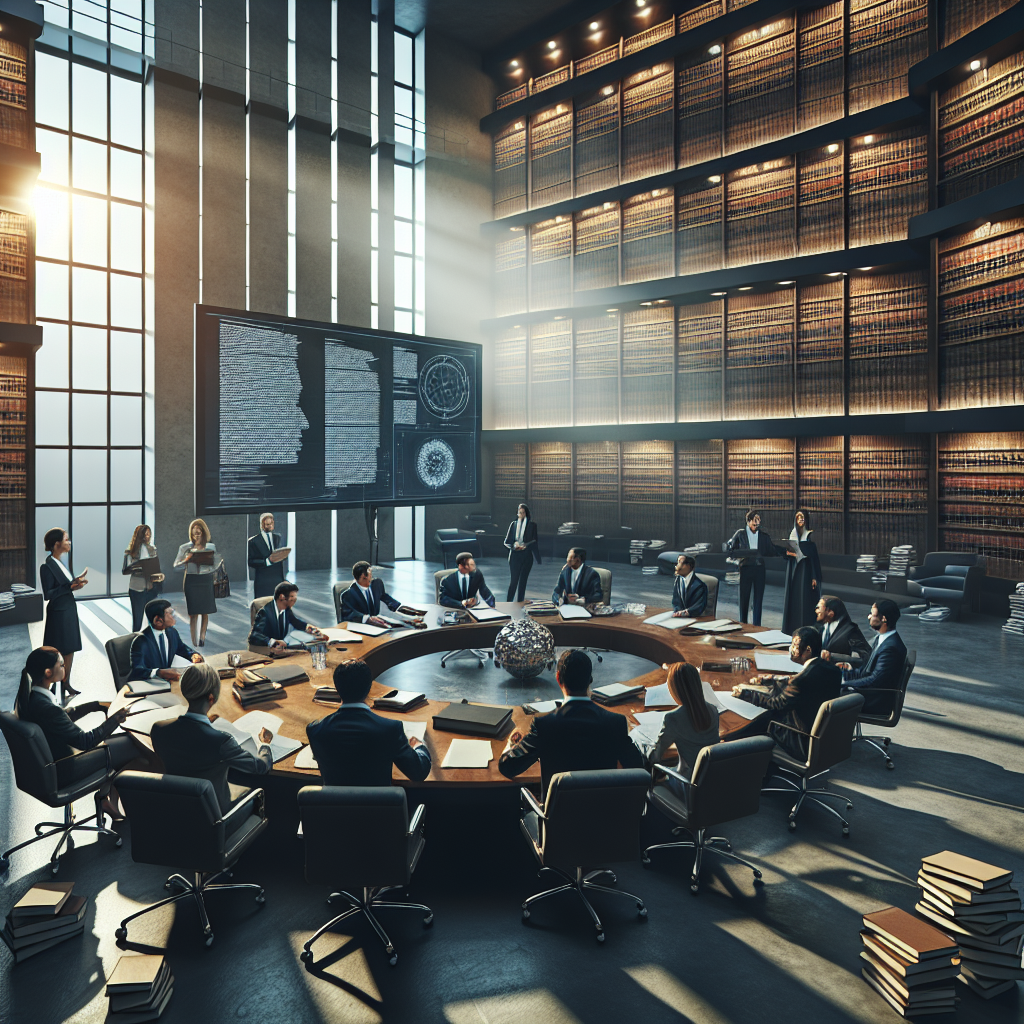Collaborating with Legal Advisors in High-Conflict Cases
Maximizing Results: Strategic Legal Collaboration for High-Conflict Cases
Overview of Strategic Legal Collaboration for High-Conflict Cases
In the legal world, high-conflict cases are often some of the most challenging and emotionally charged cases to handle. These cases involve intense disputes between parties and can often be characterized by high levels of conflict and hostility. As legal advisors, it is our responsibility to help our clients navigate these complex situations and achieve the best possible outcome.
One effective way to approach high-conflict cases is through strategic legal collaboration. This involves working closely with other legal professionals, such as mediators and lawyers, to develop a collaborative approach to resolving the conflict. By leveraging the expertise and resources of multiple professionals, we can create a more effective strategy for managing these difficult cases.
Understanding the Importance of Collaboration in High-Conflict Cases
Collaboration is crucial in high-conflict cases for several reasons. Firstly, these cases often involve multiple parties with different perspectives and interests. Collaborating with other legal advisors helps to ensure that all viewpoints are considered and that everyone’s needs are addressed.
Additionally, high-conflict cases can be emotionally charged and unpredictable, making them challenging to navigate alone. By collaborating with others, legal advisors can provide support and guidance to their clients, helping them to manage their emotions and stay focused on their goals.
Identifying Potential High-Conflict Cases
It is essential to identify potential high-conflict cases early on so that appropriate strategies can be put in place. Some common signs of a high-conflict case include:
- High levels of conflict between parties
- Emotional and intense disputes
- Difficulty communicating and reaching agreements
- History of previous conflicts or legal disputes
- Complicated legal issues
If any of these factors are present in a case, it may be necessary to collaborate with other legal advisors to effectively manage the situation.
Benefits of Strategic Legal Collaboration in High-Conflict Cases
There are many benefits to collaborative approaches in high-conflict cases. Some of the most significant advantages include:
- More comprehensive understanding of all parties’ perspectives and interests
- Greater access to resources and expertise
- Improved communication and negotiation tactics
- Increased chances of reaching a mutually beneficial resolution
- Reduced risk of escalation and further conflict
- More efficient and cost-effective resolution
By collaborating with other legal advisors, we can achieve better outcomes for our clients and effectively manage the challenges of high-conflict cases.
Key Players in Strategic Legal Collaboration for High-Conflict Cases
Effective collaboration in high-conflict cases requires the participation of various key players, including:
- Legal advisors – such as lawyers, mediators, and conflict resolution experts
- Parties involved in the conflict – their cooperation and willingness to collaborate is crucial for success
- Other professionals – such as therapists, financial advisors, and other experts who can provide additional support and guidance
- Judges and legal institutions – their involvement may be necessary to facilitate the collaboration process and ensure that the resolution is legally binding
By bringing together all these players, we can create a collaborative environment that supports the resolution of high-conflict cases.
Essential Elements of Successful Collaboration in High-Conflict Cases
In order for collaboration to be successful in high-conflict cases, there are some essential elements that must be present:
- Open and honest communication
- Trust and respect between all parties involved
- Willingness to compromise and find mutually beneficial solutions
- Clear and defined roles and responsibilities
- Effective conflict management strategies
- Commitment to finding a resolution
By establishing these elements from the beginning, the collaboration process can run smoothly and effectively.
Techniques for Effective Communication in High-Conflict Cases
Communication is a vital aspect of collaboration in high-conflict cases. Here are some techniques that can help to facilitate effective communication between parties:
- Active listening – taking the time to listen and understand the other party’s perspective
- Asking open-ended questions – to encourage dialogue and promote understanding
- Finding common ground – focusing on shared interests and goals
- Using “I” statements – to avoid blaming and promoting personal responsibility
- Paraphrasing and summarizing – to ensure that communication is clear and accurate
Managing Emotions and Difficult Personalities in High-Conflict Cases
One of the most significant challenges in high-conflict cases is managing emotions and dealing with difficult personalities. Here are some strategies that can help:
- Encourage parties to take a break when emotions are running high
- Provide support and guidance to help parties manage their emotions
- Acknowledge and validate the other party’s feelings
- Set ground rules for communication and behavior
- Focus on the facts and avoid personal attacks
By managing emotions and difficult personalities, we can create a more productive and collaborative environment.
Navigating Legal Challenges in High-Conflict Cases through Collaboration
Collaboration can also be beneficial in overcoming legal challenges in high-conflict cases. By working with other legal advisors, we can leverage their expertise and strategies to navigate complex legal issues. Additionally, collaborating with other parties involved in the conflict can help to find mutually acceptable solutions that may not have been possible through traditional legal channels.
Conclusion: The Power of Strategic Legal Collaboration in High-Conflict Cases
In conclusion, collaborating with other legal advisors in high-conflict cases can be highly beneficial for all parties involved. By working together, we can create a more comprehensive understanding of the situation, develop effective communication and conflict management strategies, and achieve the best possible outcome for our clients. With collaboration, we can transform high-conflict cases into opportunities for resolution and growth.




